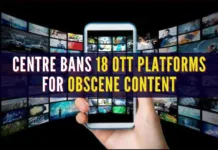
Google policy update: Effective from September 30, developers cannot show full-screen ads of all formats
Google is cracking down on unexpected, annoying ads that users face while playing Android games, along with several other new ad guidelines to ensure high-quality experiences for users on Play Store. Such ads are unexpected for users, as they expect to begin a game or engage in content instead.
The company announced wide-ranging policy changes that update rules across several categories to be more specific, clamping down on loopholes developers may have used to skirt existing rules.
Effective from September 30, developers cannot show full-screen ads of all formats (video, GIF, static, etc.) that show unexpectedly, typically when the user has chosen to do something else, are not allowed.
One of the changes that will impact your everyday phone usage the most is ads. Google says its updated guidelines will ensure “high-quality experiences for users when they are using Google Play apps.” The new policy tells developers that apps can’t pop up a full-screen ad that won’t let you close it after 15 seconds. There are some exceptions — if you voluntarily choose to watch an ad to get some sort of reward points, or if they pop up during a break in the action, those rules won’t necessarily apply.
“Ads that appear during gameplay at the beginning of a level or during the beginning of a content segment are not allowed and full-screen video interstitial ads that appear before an app’s loading screen (splash screen) are not allowed,” Google said in its developer policy update.
“Opt-in full-screen interstitials or full-screen interstitials that do not interrupt users in their actions (for example, after the score screen in a game app) may persist more than 15 seconds,” said Google. This policy does not apply to rewarded ads, monetization, and advertising that does not interfere with normal app use or gameplay. Effective from November 1, all apps distributed on Google Play are required to respect the Flag_Secure declaration of other apps for security and privacy purposes.
“Apps must not facilitate or create workarounds to bypass the Flag_Secure settings in other apps,” the company said.
“Don’t imply that your app is related to or authorized by someone that it isn’t. Be careful not to use app icons, descriptions, titles, or in-app elements that could mislead users about your app’s relationship to someone else or another app,” said Google.
Effective from September 30, if developers sell subscriptions in apps, they must ensure that the apps clearly disclose how a user can manage or cancel their subscription.
“You must also include in your app access to an easy-to-use, online method to cancel the subscription,” the company said.
[With Inputs from IANS]
PGurus is now on Telegram. Click here to join our channel and stay updated with all the latest news and views
For all the latest updates, download PGurus App.
- UP Special Task Force arrests Mahadev app India head, his associate from Lucknow - April 26, 2024
- CBI raids Sheikh Shahjahan’s relative in Sandeshkhali; seizes huge cache of arms, explosives - April 26, 2024
- Will ‘exit India’ if forced to break encryption: WhatsApp to Delhi High Court - April 26, 2024











Android itself a chor (thief) & thief is worried about other thiefs